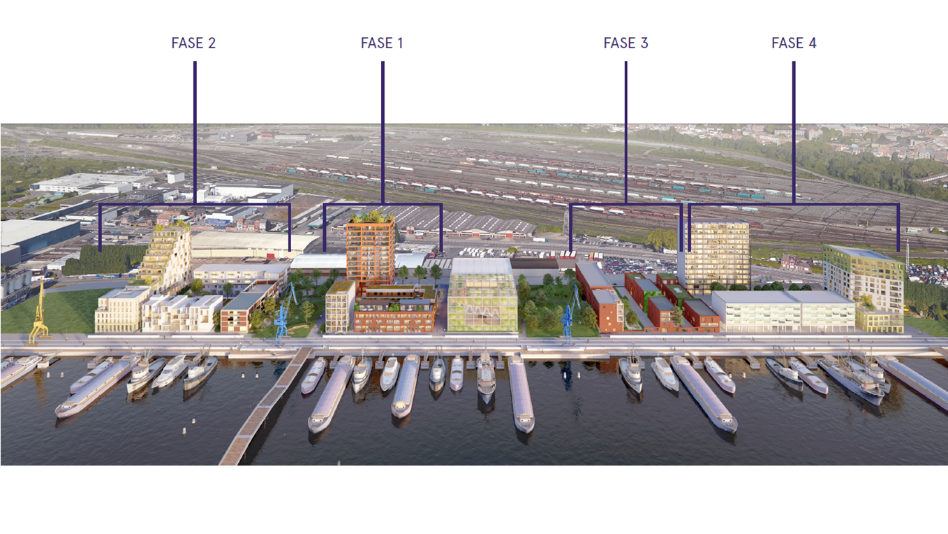The “Nieuwe Dokken” project will be realized in different phases between 2019 (Phase 1, 90 houses and school complex), 2021 (Phase 2, 120 residential units) and 2024 (Phase 3, +200 residential units).

The DuCoop project started in 2012, when a feasibility study was initiated by CEIP (Clean Energy Innovative Projects), which wanted to integrate decentral wastewater treatment with other sustainable technologies, like 4th generation district heating based on aquathermics (w/w heat pump) and low-temperature industrial waste heat, resource- and water recovery and smart renewable energy systems.
These concepts were integrated in ‘De Nieuwe Dokken’ site, which is considered as an important showcase on how a sustainable, liveable environment can be created in a newly built urban scale (>1200 residents). The main purpose of the project is to demonstrate economically viable business models for decentral treatment of residential wastewater with integration of other sustainable technologies, like low-temperature district heating, resource- and water recovery and smart energy control systems.
At full deployment, the district will be an example of circular economy, with yearly re-use of over 30.000m³ of freshwater (>90% of the total consumption), recovery of over 750MWh of waste heat and the production of 1.500kg of phosphate- and nitrogen rich crystals (struvite), which could be used as a renewable fertilizer in a local urban agriculture project. This water treatment system will combine novel technologies like vacuum sewer systems, digestion of black water, struvite recovery, recovery of waste heat from the effluent of the water treatment plant with a heat pump and an aerobic membrane bioreactor.
The cooperation DuCoop has realized a 4th generation district heating network providing the 400 apartments in the ‘Nieuwe Dokken’ district in Ghent with central heating and sanitary hot water, supplied with sustainable waste heat that is produced from biogas and a heat pump. This will cover up to 1/3 of the district’s heat demand (1.500 MWh). The remaining heat will be provided by low-temperature (55°C) waste heat from nearby industry, which should be able to provide the peak demand of the heating system at any time. Next to this, DuCoop will develop solar PV-panels on the rooftops of the apartment buildings, offer EV-charging points for sustainable (shared) mobility and try to optimize the energy consumption through storage, information networks and data monitoring, and the use of intelligent energy management system (EMS) algorithms.
People are involved, informed and aware of the sustainable values of the project, and we are enjoying a huge degree of participation in our board meetings, information sessions, etc. Also, other stakeholders (universities, knowledge institutions, project developers, policy makers) want to come and see the project during site visits, colloquia and events.
The main goal of the Ghent pilot is to increase the share of renewable energy by matching the energy demand in the district with local renewable energy production.
a residential area
in Ghent - Belgium